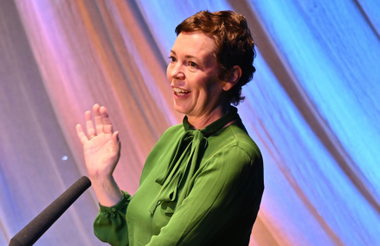High-profile celebrities and others at the top of their respective fields front a number of charities, with many dedicating time to third-sector organisations over a number of years.
Some of the perks are clear; they bring attention to charities’ causes, and thereby fundraising potential and awareness building.
Nonetheless, celebrity ambassadorships bring with them a level of risk. Indeed, several organisations have had to cut ties with famous ambassadors and patrons, after they’ve become embroiled in scandal or safeguarding issues, or following comments they have made.
For example, The Prince's Trust recently stated it will no longer work with Phillip Schofield, and Fiona Bruce stood down from her role as ambassador for domestic violence charity Refuge after complaints over remarks she made on BBC Question Time.
As well as the reputational risks, those who hold these roles are not always experts on their charities’ causes, and there is a question around the level of expectation charities can put on them.
‘They can raise awareness in different ways’
Lu Napthine, artist liaison at Samaritans, says: “The advantages of working with our ambassadors is really to increase the reach and awareness that we have to reach different people. They can raise awareness in different ways.
“We try and work with people across a diverse range of backgrounds. And obviously, with regards to their careers and their audiences, they all speak to slightly different people, which is really important for us.
“We work with people who have lived experience, and we want to make sure that the people that we're working with can offer authenticity and integrity.”
The charity’s Brew Monday video in 2022 featuring Julie Walters, Stevie Basaula, Keith Lemon and James Acaster is the most interacted-with piece of content on its Instagram in the last two years. It also has the highest reach of all its content ever on the channel.
Moreover, when Samaritans announced Scarlett Moffatt as an ambassador in May 2021, to coincide with Mental Health Awareness Week, this got a lot of coverage, which particularly focused on her experiences of contacting Samaritans for support.
Napthine says: “Samaritans means a lot to the people that support us, and that is those genuine partnerships that we’re looking for – the stories that we tell, the stories of hope and recovery.”
TOFS charity supports people with rare congenital conditions of the oesophagus. The charity recently appointed Charlotte Fisher as its first celebrity patron with lived experience.
Chief executive Diane Stephens says the charity had been searching for a suitable ambassador for some time.
“Our charity supports those born with tracheo-oesophageal fistula and oesophageal atresia, (OA/TOF) and associated conditions,” she says.
“When we heard of someone in the public eye with first-hand experience of a baby born with OA/TOF we grasped the opportunity to bring Charlotte on board.
“We believe ambassadors with lived experience like Charlotte will do an amazing job in raising awareness and we’re hugely grateful for her time, energy and support to help our work.
“Charlotte’s our first celeb ambassador with lived experience of the condition and we’ve researched what might be reasonable to expect an ambassador to do and how we might work together for the common aim of increasing awareness of OA/TOF.
“We’re very fortunate in that she’s an incredibly articulate and passionate individual and her goals match ours – raising awareness and making life better for OA patients – so that made her a perfect match.”
TOFS most recently reported an income of just under £200,000, and Stephens says: “As a small charity, we’re incredibly reliant on volunteers, all of whom have been touched by OA/TOF. They provide an amazing role by helping us achieve our aims and Charlotte is no different.”
Fundraising opportunities
Susie McDonald, chief executive of domestic abuse charity Tender, says having actor Olivia Colman as a patron “has been a wholly positive experience”.
Tender, which last year had an income of around £2m, works with young people to prevent domestic abuse and sexual violence through creative projects. The charity approached Colman after seeing her in Tyrannosaur, a film which explored domestic abuse.
McDonald says Tender was interested to have Colman as its patron, though the idea of how the arrangement would work for a small charity “wasn’t necessarily a wholly formulated plan”.
“I thought other charities have ambassadors and patrons and we’re a charity that is issue-based in terms of addressing domestic abuse, but we also use creative arts as our way of engaging and we only do prevention work. So we’re quite unique, in that we sit across a number of different kinds of sectors,” she says.
As well as raising its profile and reaching new audiences, enlisting Colman as a patron has created fundraising opportunities for the charity.
Tender hosts events during the year that Colman will attend, where potential or current funders can come and meet her, McDonald says. “So there are opportunities throughout the year that are then a mechanism for us to be able to fundraise.”
Nonetheless, McDonald admits that: “We haven’t done an analytical audit of how this has brought in specific funding. I think it’s a bit more organic than that."
“There are lots of extraordinarily hard-working people who really want to give their time to charities that they care about, and therefore being an ambassador is quite a useful way of doing that because by providing a quote and a photograph on the website, that can in itself encourage people to come to the website and learn more about the issue. It can be a really positive thing.”
Napthine says the other advantage for Samaritans is that ambassadors fundraise in different ways.
Josh Patterson ran 76 marathons in 76 consecutive UK cities in 76 days, setting a new world record and raising almost £400,000. The amount of coverage his challenge received meant it was the second most viewed Samaritans moment in the past 12 months.
Other examples include fundraising from Sarah Millican, who did bucket collections at every one of her UK gigs for two tours, and raised almost £800,000.
‘There are no crystal balls involved’
Asked about the potential risks of appointing a celebrity patron, Stephens says: “Managing risk is part of the day-to-day running of a registered charity.
“As well as obligations to the regulatory bodies, we have a duty to serve our amazing community who fundraise tirelessly so that we’re able to continue doing what we do. At the heart of every strategic and operational decision we ask ourselves: ‘How will this help the OA/TOF community?’
“There are more than 6,000 conditions that are recognised as rare in the UK, and that’s a lot of patient groups fighting to get heard. If ambassadors are willing to dedicate their time to raise awareness and inspire an audience, this gives us a unique opportunity that we grab with both hands.
“Of course, we do our due diligence, but there are no crystal balls involved – just mutual trust and commitment. Clear honest communication is vital so that both parties know what to expect of the other. And if we didn’t feel confident in the partnership we simply wouldn’t take the chance of appointing volunteers in this way.”
Meanwhile, Tender's McDonald says any charity needs to be confident about who their patron is, in terms of their background and commitment to the cause.
“What we’ve never wanted to do is engage with people because they have publicly talked about being victims,” she says.
“Because we’re not a frontline organisation working with and supporting victims and survivors, we don’t need to have a patron who also has publicly talked about those things. And that's not disrespecting, of course, the real value of that personal lived experience.”
This year, to mark its 20th anniversary, Tender announced nine more actors to join Colman as ambassadors for the charity.
The new ambassadors – Aisling Bea, Amy-Leigh Hickman, Ben Whishaw, Jessie Buckley, Jodie Whittaker, Josh O'Connor, Phoebe Waller-Bridge, Priyanga Burford and Rebekah Staton – have all participated in at least one training session, says McDonald.
“That session is very gentle and very playful, but enables them to see the process that we go through when we run a training session for any group, whether it’s young people or adults, so that they can begin to sense what the key issues are – it’s about the key points, understanding the range of types of domestic abuse,” she says.
“We’re very careful about making sure that they feel well briefed. So that’s partly why they do the training workshop – so that they can be equipped with some simple messaging that’s not overcomplicated, that doesn’t require lots of knowledge around the theoretical underpinning of gendered violence or all the latest stats, so that they’re confident about saying what they don't know as well as what they do.
“We would always give them a briefing if they were going to be doing an interview so that they’ve got the key information, and try to keep that as simple as possible, so it’s not overwhelming. The issue of domestic abuse is one where people worry about saying the wrong thing.
But, she adds: “We’re never saying to them, ‘you need to be the expert’, because they can’t be. It is a complex issue, and it would be unfair to say ‘go and be the spokesperson for this’.”
Napthine of Samaritans says: “We have to just be conscious as to what they might be going through at any given time and make sure that we're being sensitive as to the way we’re working with them.”
“The challenges surround the very nature of the work that we’re doing, the stigmas that can still exist around suicide. So that can be a barrier with some people wanting to work with us. Perhaps they’re not quite ready to share too much about what they’ve experienced in the past. Perhaps they might be feeling too vulnerable to share those stories with us. So we have to just be mindful of that.
“And also, there’s lots of things to be conscious of around getting the wording right to make sure that we’re not working with them in a way that might be triggering to other people. It’s just being very sensitive around what they might have gone through in the past and the people that we’re hoping that they might reach.”
She says Samaritans works to ensure that if ambassadors are talking about themselves or loved ones, it’s up to them how much they share and that they never feel pressured into sharing something they might feel uncomfortable with.
Diversifying ambassadors
McDonald says her charity plans to appoint more ambassadors in future from more diverse backgrounds.
“We want to be able to represent the kind of people that we’re working with: younger ambassadors, a range of different genders, a different range of different ethnicities,” she says.
“That’s something that we’re pushing for, and we’re making some progress, but we’re still on a journey with that.”
She adds: “We want anybody across the country to be able to identify with one or two of those ambassadors” but that will take time as “we have to go through quite a methodical process to make that happen”.
Napthine says the Samaritans’ ambassadors are those that have supported the charity for a long time, and will have lived experience to some degree.
In terms of selecting ambassadors, Napthine says: “We look at where the gaps are in terms of people that we’re hoping to reach and different demographics and we keep a very close eye on those that are speaking out about their personal experiences.”
Samaritans then researches further and goes through “quite a strict due diligence, just to make sure that we’re not working with someone who potentially could compromise Samaritans’ values”.
The charity looks out for reputational risks, and will make proactive approaches to people, either directly or through their agents. Sometimes people approach the charity for opportunities as well.
Related Articles












